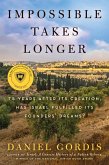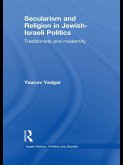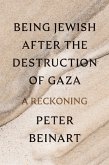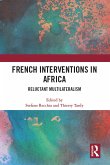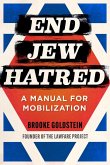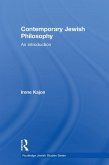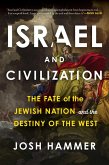Christianity arose from the lands of biblical Palestine and, regardless of its twentieth century associations with the Arab-Israeli conflict, to Christians around the world it remains first and foremost the birthplace of Christianity. Nevertheless the size of the Christian population among Palestinians today living in Israel and the Palestinian territories is now relatively insignificant. In Radical Christianity in the Middle East, Samuel J. Kuruvilla argues that Christian Palestinians often emply politically astute as well as theologically radical means in their efforts to prove relevant as a minority community within Israeli and Palestinian societies. Examining the political background of the gradual collapse of secular Arab Nationalism, to be replaced by Islamic liberation movements, he reveals a trend within the Christian Palestinian Church which saw increasing politicisation in the 1980s and 1990s. In the face of often-restrictive Israeli policies, such as land confiscation, along with the First Intifada, there was a drive towards setting up inter-Church and faith activism with the goal of Palestinian liberation.
Kuruvilla charts the development of a theology of Christian liberation, in particular through the work of Palestinian Anglican cleric Naim Stifan Ateek and Palestinian Lutheran Pastor Mitri Raheb. From its roots in 1960s Latin America, liberation theology has been adapted and contextualised within the specific situation within Israel and Palestine to produce a framework that emphasises peace and reconciliation, while recognising the importance of resistance and national unity. Theology has impacted Christian perceptions of Palestinians' struggle with Israel; the idea of a land promised to the sons of Abraham and the moral responsibilities that come with this are pitted against Israeli oppression of both Christian and Muslim inhabitants of the Holy Land and their desire for independence and justice. Through this comprehensive study of the,often overlooked, theological, political and practical position of Christians in Palestine, Kuruvilla provides a new and insightful perspective on one of the most written-about conflicts.
Kuruvilla charts the development of a theology of Christian liberation, in particular through the work of Palestinian Anglican cleric Naim Stifan Ateek and Palestinian Lutheran Pastor Mitri Raheb. From its roots in 1960s Latin America, liberation theology has been adapted and contextualised within the specific situation within Israel and Palestine to produce a framework that emphasises peace and reconciliation, while recognising the importance of resistance and national unity. Theology has impacted Christian perceptions of Palestinians' struggle with Israel; the idea of a land promised to the sons of Abraham and the moral responsibilities that come with this are pitted against Israeli oppression of both Christian and Muslim inhabitants of the Holy Land and their desire for independence and justice. Through this comprehensive study of the,often overlooked, theological, political and practical position of Christians in Palestine, Kuruvilla provides a new and insightful perspective on one of the most written-about conflicts.



